 On this Sunday (28th of Year A) we are given another of those parables well-known to us: the invitation to a wedding party (Mt.22:1-14).
On this Sunday (28th of Year A) we are given another of those parables well-known to us: the invitation to a wedding party (Mt.22:1-14).
Who would want to miss this? But, obviously, some people are not keen on the idea…
The gospel text says as much: “They were not interested…” (v.5)
Looking at the gospel narratives as a whole, I realize that many of the texts show us scenes of… INVITATIONS.
It is obvious for the first disciples, Andrew and John, who were told: “Come and see… (Jn.1:39).”
The invitation was addressed, in one form or another, to all the apostles.
Matthew, among others, was asked to leave his tax collector work and follow Jesus (Mt.9:9).
And all the others accepted as well to join the group of Jesus’ close followers.
Much later, Thomas was invited to a life of a faith which no longer admits of doubt: “Doubt no longer but believe” (Jn.21:27).
Nicodemus (Jn.3:1-16) was invited to be born anew…
The Samaritan woman (Jn.4:5-30) was invited (requested…) to give Jesus water so that, in turn, he may do the same for her, but giving water of a different kind.
The adulterous woman (Jn.8:1-11) was invited to a new life leaving behind her old ways: “Go away, and don’t sin anymore.”…
The scribe asking the question (Lc.10:25-37) about his ‘neighbour’ was invited – more still, was told – to “do the same…”
In subtle, and not so subtle ways (as in today’s parable), the Pharisees too had been invited: “If I speak the truth, why do you not believe me?” (Jn.8:46). “Walk while you have the light or the dark will overtake you” (Jn.12:35). But they stubbornly refused any such invitation.
And Zachée (Lc.19:1-10) had his own special invitation: in fact, Jesus invited himself to his place asking him to be his host. Quite an invitation!
And then, there was the rich young man (Lc.18:18-23) invited to follow Jesus, but his attitude resembled very much that of today’s invited guests of the parable… “He turned away sad…”
Every one of them had a choice to make, a decision to take – this is what invitations are about!
Looking at my own life, I can notice as well a whole series of invitations from God – I could make a long list of them.
And I guess that you could make such a list for yourself.
Some of those requests from God, I accepted… sometimes reluctantly, sometimes wholeheartedly.
It happened that I debated with myself and I had to overcome my laziness, my indifference, my ‘busy-ness’ with so many other concerns…
At times, to my shame I must admit that… I was not very much interested… God had to convince me with ways that are uniquely his!
And, I find myself today, still on the way – on the way to readily welcome God’s interventions in my life, for this is what his invitations are.
Interventions of his to help me grow in readiness and willingness to welcome him in my day-to-day life and experiences.
This is THE way to taste the deep JOY of sharing in this exceptional feast he has prepared for me!
Source: Images: Pinterest, crosswalk.com
 On October 17, 1987,World Day to Overcome Extreme Poverty , at the call of Father Joseph Wresinski , 100,000 human rights defenders gathered at the Parvis du Trocadéro in Paris to honor the victims of hunger, violence, ignorance and violence. To say their refusal of misery and call on humanity to unite to make respect for Human Rights..
On October 17, 1987,World Day to Overcome Extreme Poverty , at the call of Father Joseph Wresinski , 100,000 human rights defenders gathered at the Parvis du Trocadéro in Paris to honor the victims of hunger, violence, ignorance and violence. To say their refusal of misery and call on humanity to unite to make respect for Human Rights..

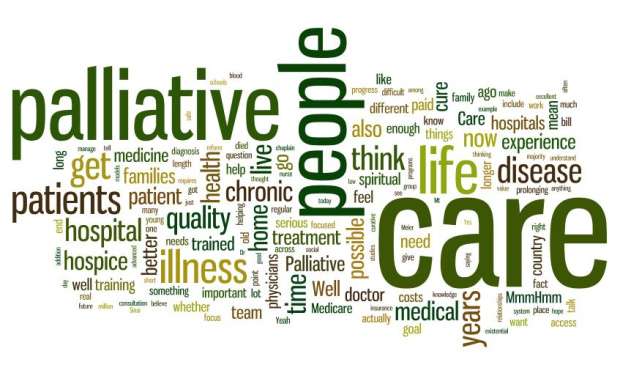 The Worldwide Hospice Palliative Care Alliance (WHPCA) has announced the theme of this year’s World Hospice and Palliative Care Day and Voices for Hospices. The theme is: Universal Health Coverage and Palliative Care: Don’t leave those suffering behind!
The Worldwide Hospice Palliative Care Alliance (WHPCA) has announced the theme of this year’s World Hospice and Palliative Care Day and Voices for Hospices. The theme is: Universal Health Coverage and Palliative Care: Don’t leave those suffering behind! On this Sunday (28th of Year A) we are given another of those parables well-known to us: the invitation to a wedding party (Mt.22:1-14).
On this Sunday (28th of Year A) we are given another of those parables well-known to us: the invitation to a wedding party (Mt.22:1-14).


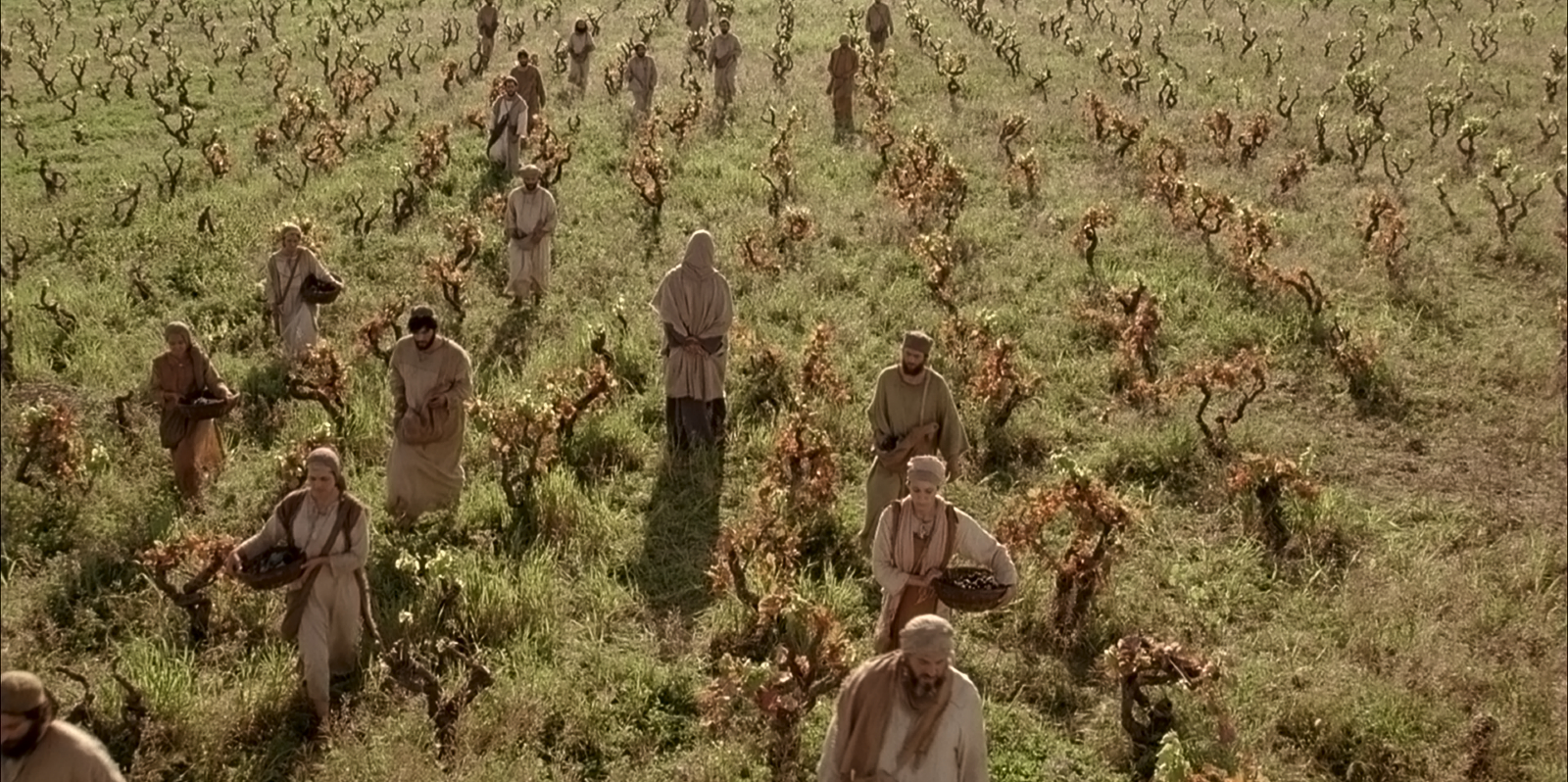
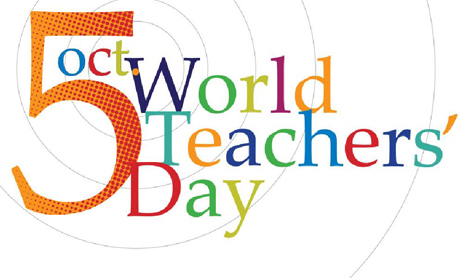 On October 5, 1966, the Special Intergovernmental Conference on the Status of Teachers in Paris, France, was closed and the « Recommendation concerning the Status of Teachers » was signed by representatives of UNESCO and International Labour Organization. On October 12, 1997, the 29th session of UNESCO’s General Conference was opened. During this conference, on November 11, 1997, the « Recommendation concerning the Status of Higher Education Teaching Personnel » was adopted.
On October 5, 1966, the Special Intergovernmental Conference on the Status of Teachers in Paris, France, was closed and the « Recommendation concerning the Status of Teachers » was signed by representatives of UNESCO and International Labour Organization. On October 12, 1997, the 29th session of UNESCO’s General Conference was opened. During this conference, on November 11, 1997, the « Recommendation concerning the Status of Higher Education Teaching Personnel » was adopted.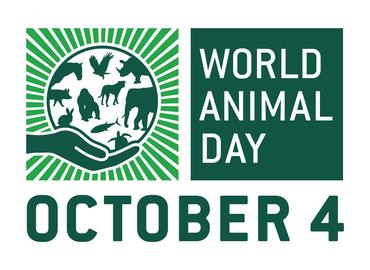 It’s all about animals on October 04 – the World Animal Day (WAD). This is an international awareness day and puts the harm of animals caused by humans into the centre of attention. Often farm animals and pets are kept under bad conditions and neglected.
It’s all about animals on October 04 – the World Animal Day (WAD). This is an international awareness day and puts the harm of animals caused by humans into the centre of attention. Often farm animals and pets are kept under bad conditions and neglected.  Extremely cruel treatments like violence, neglect or too long periods of transports are blasted. Very often animal homes, shelters and animal clinics organize open house on World Animal Day. Everyone shall be encouraged to rise up against cruelty towards animals.
Extremely cruel treatments like violence, neglect or too long periods of transports are blasted. Very often animal homes, shelters and animal clinics organize open house on World Animal Day. Everyone shall be encouraged to rise up against cruelty towards animals.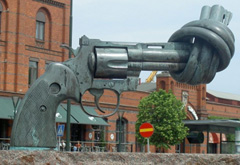 The International Day of Non-Violence is marked on 2 October, the birthday of Mahatma Gandhi, leader of the Indian independence movement and pioneer of the philosophy and strategy of non-violence.
The International Day of Non-Violence is marked on 2 October, the birthday of Mahatma Gandhi, leader of the Indian independence movement and pioneer of the philosophy and strategy of non-violence.